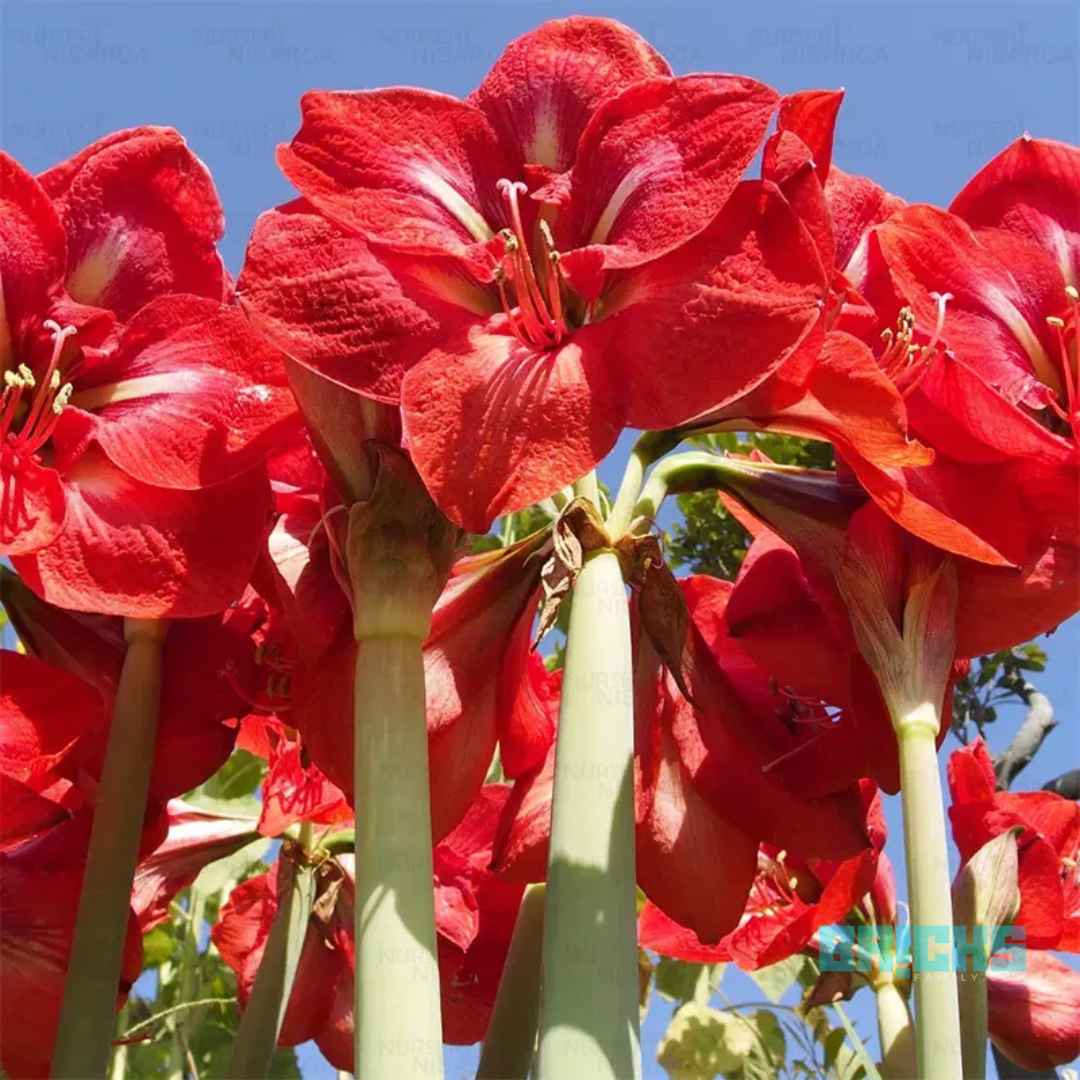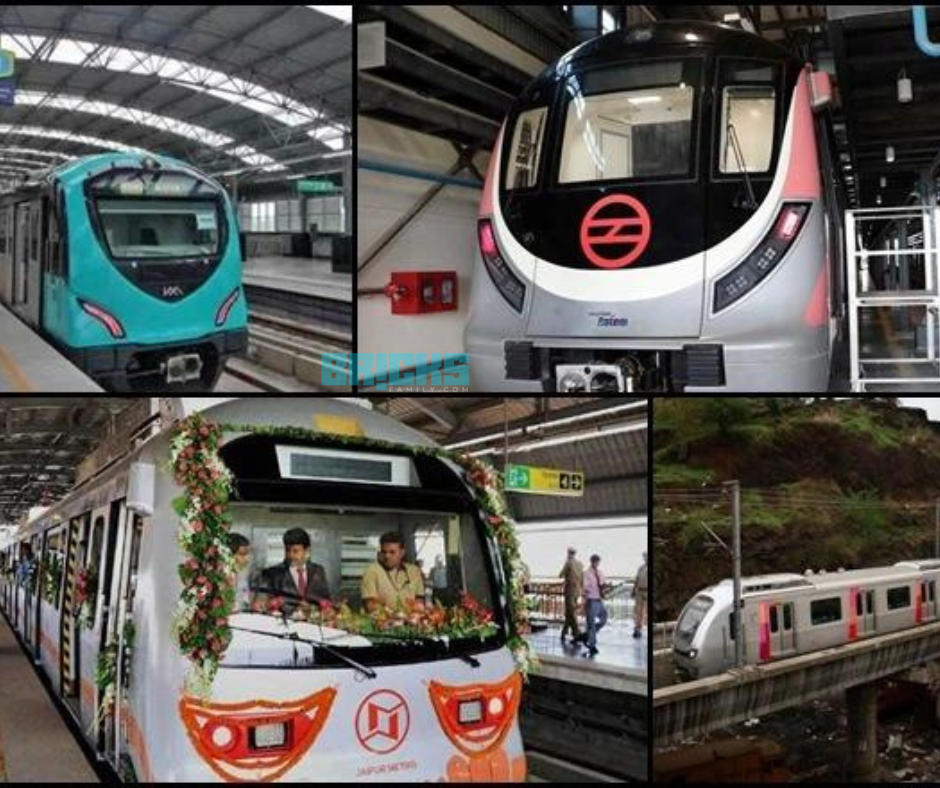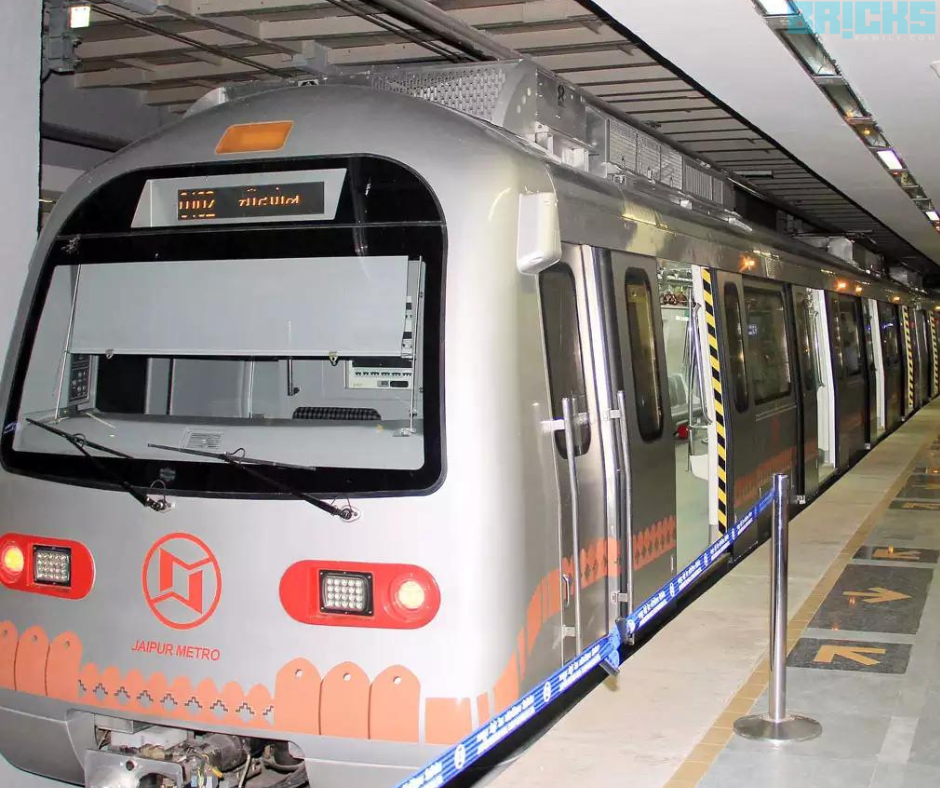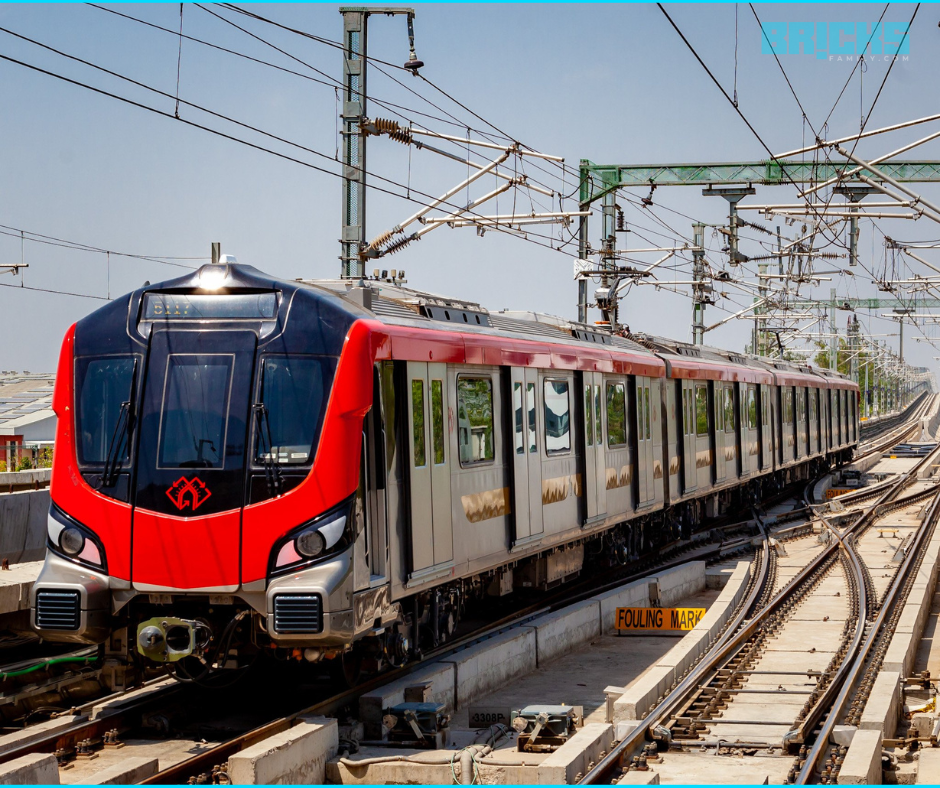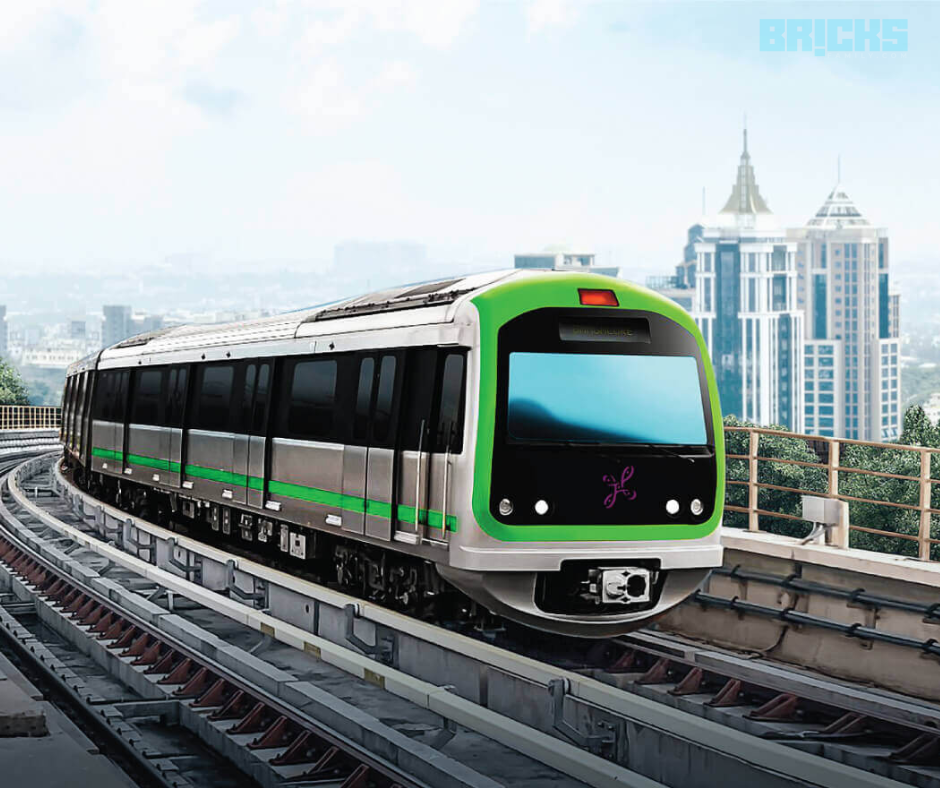It’s not a surprise to learn that it’s no surprise that the Indian business sector has grown by leaps and bounds in the last decade. The result has been the growth of diverse areas of public goods. Transportation is not an exception. The Metro train significantly influences cities, whether it is about living conditions or property prices.
The country has the title of having the largest rail network in the world. Looking at how fast it is growing, the day is not far away when India will also be the holder of the largest Metro Rail Network. At present, the metro network in India covers more than 500 km. Additionally, more than 600 kilometers of metro networks are being constructed across 15 cities throughout India.
Metro Network in India
The Metrorail system serves fifteen Indian cities. The cities of Metro network India include Kolkata, Delhi, Chennai, Bengaluru, Hyderabad, Ahmedabad, Jaipur, Gurugram, Mumbai, Noida, Kochi, Lucknow, Nagpur, Kanpur, and Pune.
The National Capital, Delhi, holds the most extensive metro system in India, and the first metro service was launched in Kolkata in 1984. Let’s take an overview of the metro network of India.
1. Kolkata Metro Rail Network
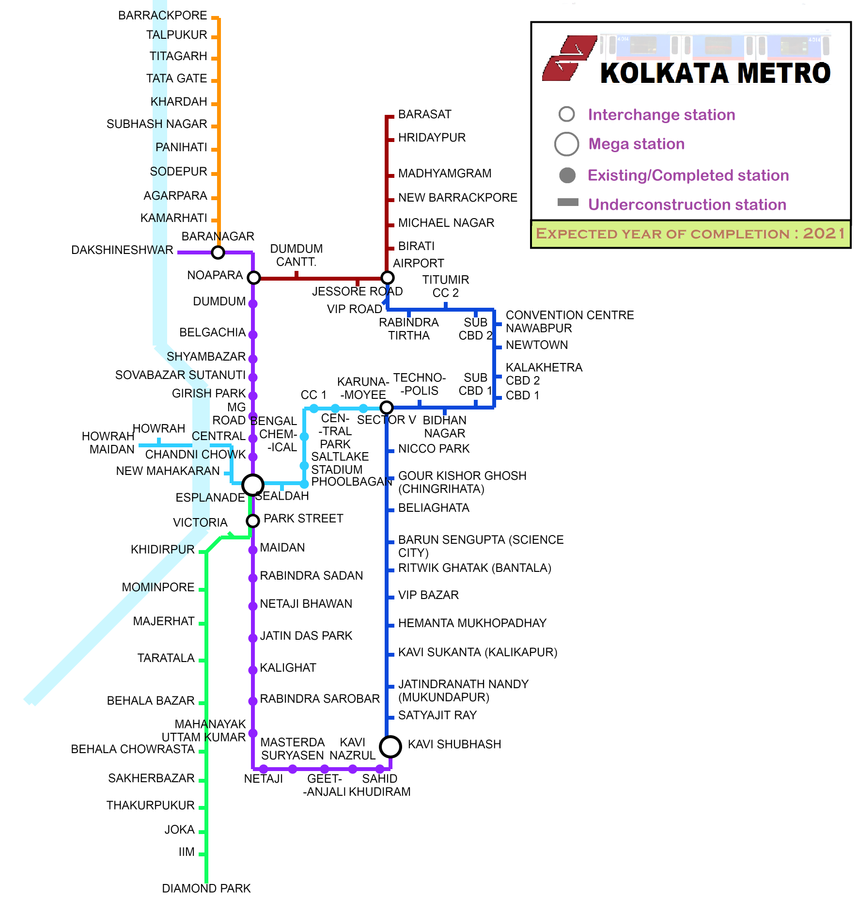
The network was established in 1984. Kolkata Metro is the first metro system in India. The rapid transit system is in Kolkata, the City of Joy, Kolkata. It comprises two corridors, bringing the total distance covered by this metro to Kolkata Metro to 38.26 km.
Other than these 2 lines in operation, 4 additional lines are currently under development in Kolkata. The metro trains of Kolkata are in process from 7 am until 11 pm each day. The metro fare varies between INR 5 to INR 25. India’s fifth largest metro network is operated and controlled by two authorities: Metro Railways, Kolkata, and Kolkata Metro Rail Corporation.
Additionally, it is worth noting that it is also worth noting that the Kolkata Metro is controlled directly by the Indian Railways, making it the only metro line operated through the Indian Railways. The city metro transports around 7,00,000 people every day!
2. Delhi Metro Rail Network
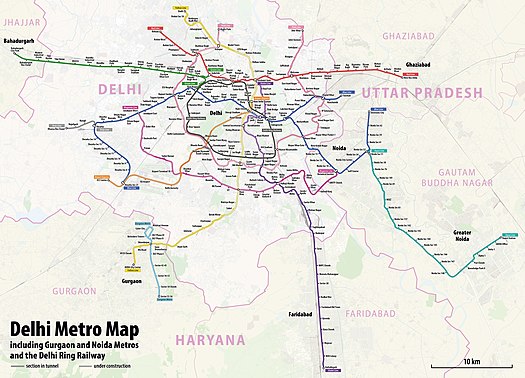
It is believed that the Delhi Metro Rail is the most popular and largest metro system in India. It is operated and managed under the Delhi Metro Rail Corporation (DMRC) supervision. Delhi Metro Rail Corporation (DMRC) is an organization that has equal equity participation from both the Central Government of India and the State Government of Delhi.
Delhi Metro serves the National Capital and NCR cities such as Gurugram, Faridabad, Noida, Ghaziabad, Bahadurgarh, and Ballabhgarh. Delhi Metro is Delhi Metro has an extensively divided corridor represented by 10 color codes and 285 stations. This makes it an efficient and comprehensive metro system in India.
Its Metro Rail is spread across an area of 348.12 kilometers. All metro rails in Delhi are in operation from 5:00 am until 11:30 pm each day. The fares paid by passengers vary between INR 10.10 to INR 100.
The United Nations also certified the Delhi Metro in 2011 to reduce carbon emissions from New Delhi – up to 630,000 tonnes yearly! The average daily number of riders on the Delhi Metro is 40,00,000 passengers.
3. Mumbai Metro Rail Network
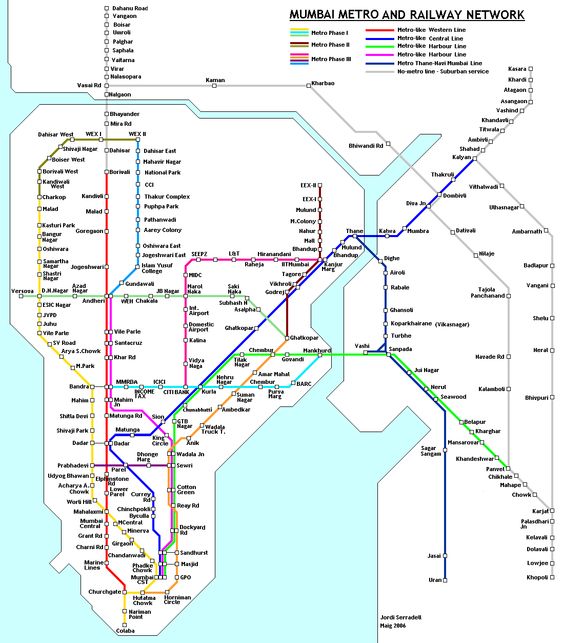
Mumbai Metro Rail Network is a network that covers and serves Mumbai, Maharashtra. It is the most extensive metro system partially complete in India. It is expected to extend more than 356.9 kilometers by 2026.
The Metro network located in India is administered and managed through a joint venture of Reliance Infrastructure and the Mumbai Metropolitan Regional Development Authority (MMRDA). It will comprise 14 corridors, each marked with 14 distinct colors.
All metro rails in Mumbai operate from 6.30 am to 11.00 midnight all day. Additionally, a metro ride’s cost varies between INR 10.10 to INR 50. The daily average of the Mumbai Metro is 8,83,000 passengers!
4. Bangalore Metro Rail Network
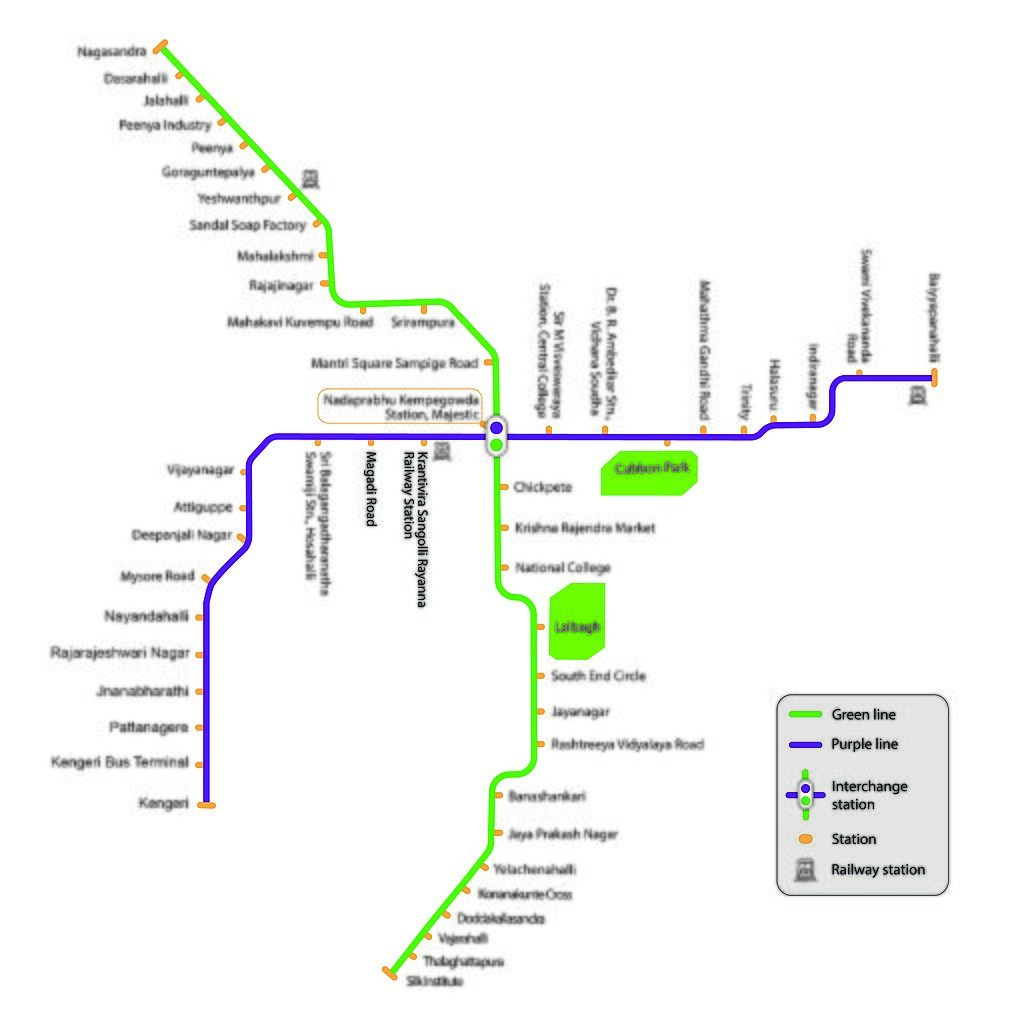
The Bengaluru Metro Rail Network, sometimes referred to as The Namma Metro, is the metro railway network connecting Bangalore. Bangalore. It is also the same premier metro train system of South India and the robust Metro system in India. The metropolitan network of India is run and managed by Bengaluru Metro Rail Corporation Limited (BMRCL).
The metro trains of Bengaluru operate from 5:00 am to 11:30 pm daily. The price for Bangalore Metro varies between INR 10 to INR 17. The daily average ridership for Bengaluru Metro is 5,18,000 passengers!
5. Chennai Metro Rail Network
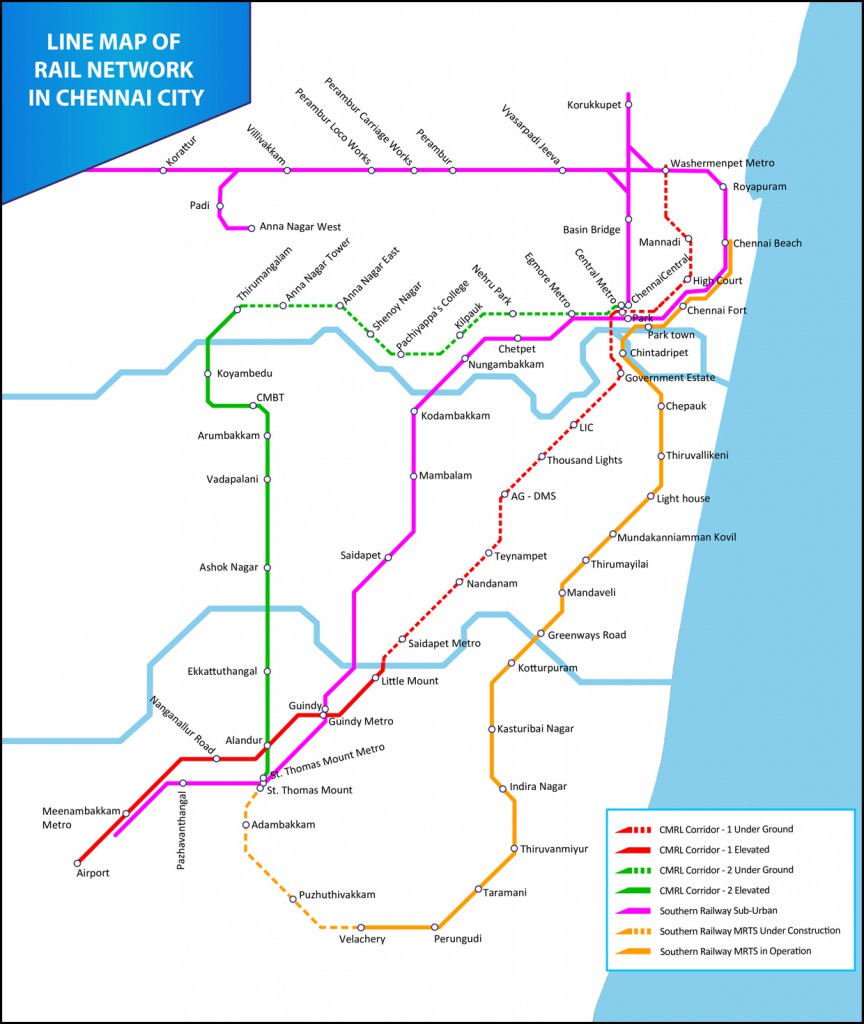
Chennai Metro Rail Network has served Chennai and Tamil Nadu since 2015. It is India’s fourth most extensive metropolitan network, following Delhi, Hyderabad, and Bengaluru. Chennai Metro Chennai Metro consists of two corridors that span a total distance of 54.65 kilometers.
This metro system in India is operated and managed by Chennai Metro Rail Limited (CMRL), a joint venture with the Central Government of India and the State Government of Tamil Nadu.
All metro rails in Chennai are in operation from 4.30 AM until 11:59 PM. The price varies between thirty to sixty rupees. The daily average ridership for Bengaluru Metro is 1,60,000 passengers!
6. Hyderabad Metro Rail Network
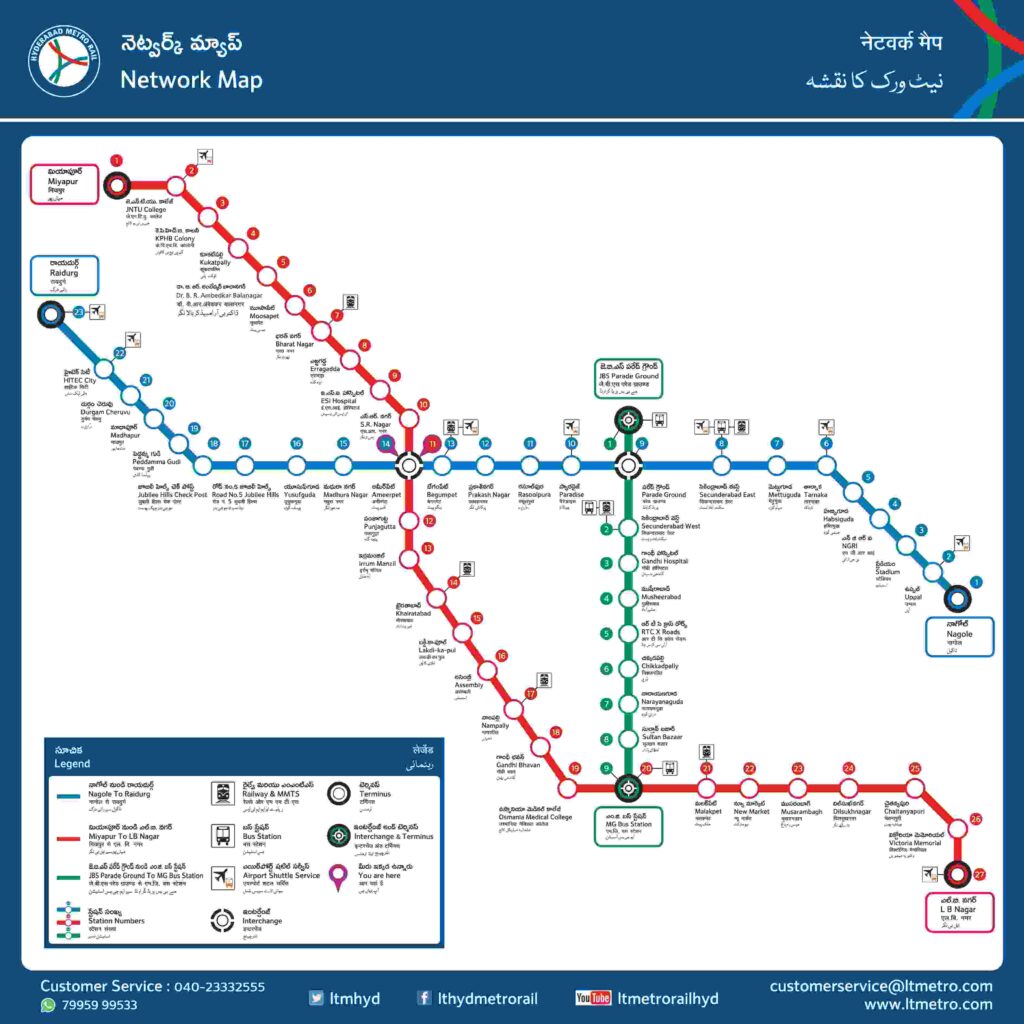
Hyderabad Metro is the Metro rail system operating in Hyderabad, the capital city of Hyderabad, Telangana. It is the second-longest metro system in India, following its counterpart, the Delhi Metro, covering 57 stations.
Contrary to other metro collaborations, this system in India is funded through a Public-Private Partnership (PPP), with Telangana Govern holding the minority shares and L&T as the largest shareholder.
All metro rails in Hyderabad operate daily from 6.00 AM and 11:15 PM. Additionally, the cost of a metro ride differs between INR 10.10 to INR 30. The daily average ridership for Bengaluru Metro is 4,90,000 passengers.
7. Ahmedabad Metro Rail Network
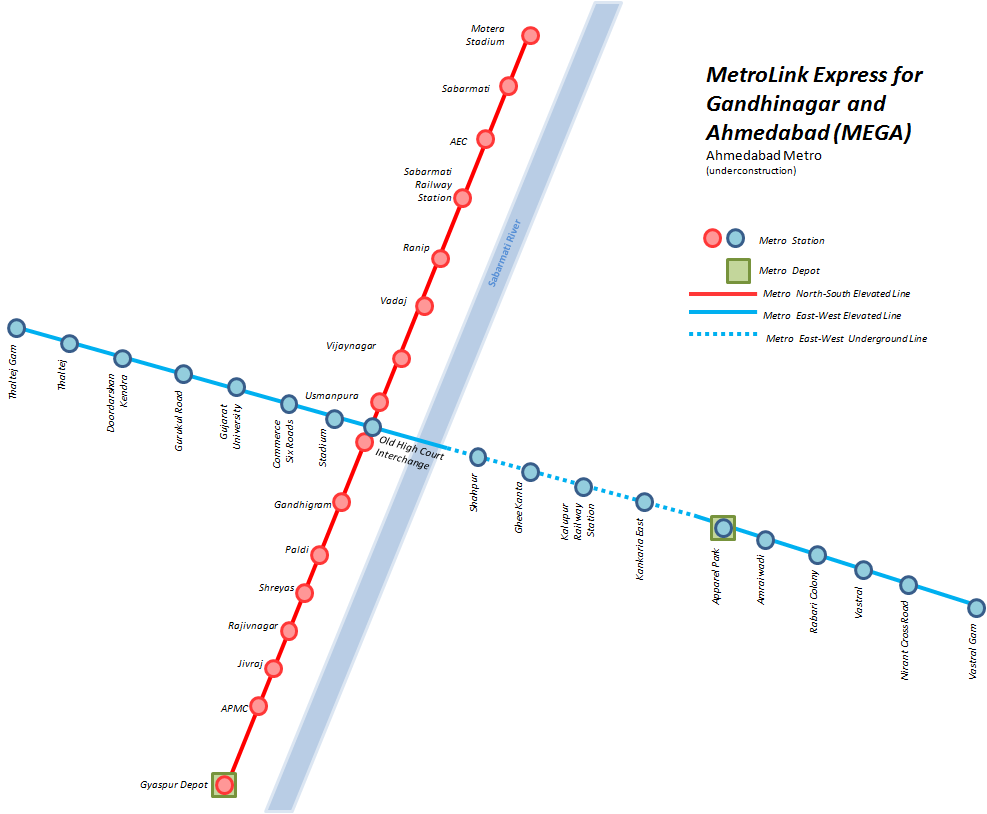
The Ahmedabad Metro provides the Metro rail system operating within the cities of Ahmedabad and Gandhinagar, Gujarat. The metro network in India is managed in the hands of the Gujarat Metro Rail Corporation (GMRC). Gujarat Metro Rail Corporation (GMRC).
While the first section of the Ahmedabad metro has been operational since 2019 onwards, the second phase of the expansion is under construction. The metro rails in Ahmedabad and Gandhinagar operate daily from 10.00 am to 6.00 pm. Furthermore, the metro ranges between INR 5 and INR 10. The average daily usage of Ahmedabad Metro is the least among all metro networks in India: only 500 people per day.
8. Rapid Metro Gurgaon Rail Network
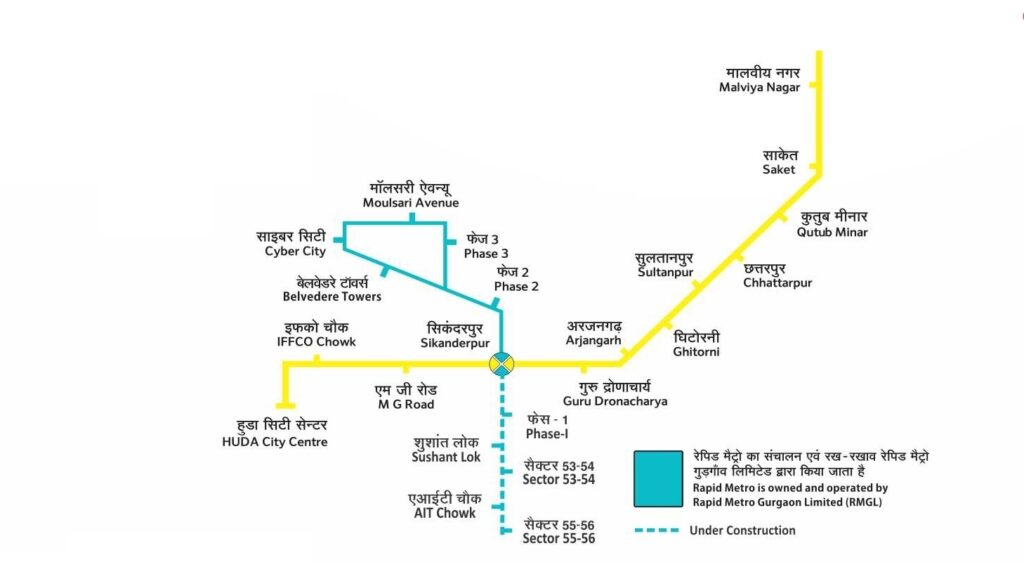
Gurugram Metro, officially known as the Rapid Metro, serves the Gurugram city of Haryana. It is in good contact with its counterpart, the Delhi Metro, with a mutual station in Sikandarpur.
The metro network in India is managed and owned by a private business – Rapid Metro Gurgaon Limited (RMGL), without any government funding. However, the operation is now being taken over by the Delhi Metro Rail Corporation (DMRC).
The metro system in India extends over 12.85 kilometers and includes 11 stations. The metro trains of Gurugram operate from 6.00 am until 11:00 pm all day. Additionally, the cost will be INR 30. The daily average ridership for Gurugram Metro is 50,000 to 60,000 passengers.
9. Jaipur Metro Rail Network
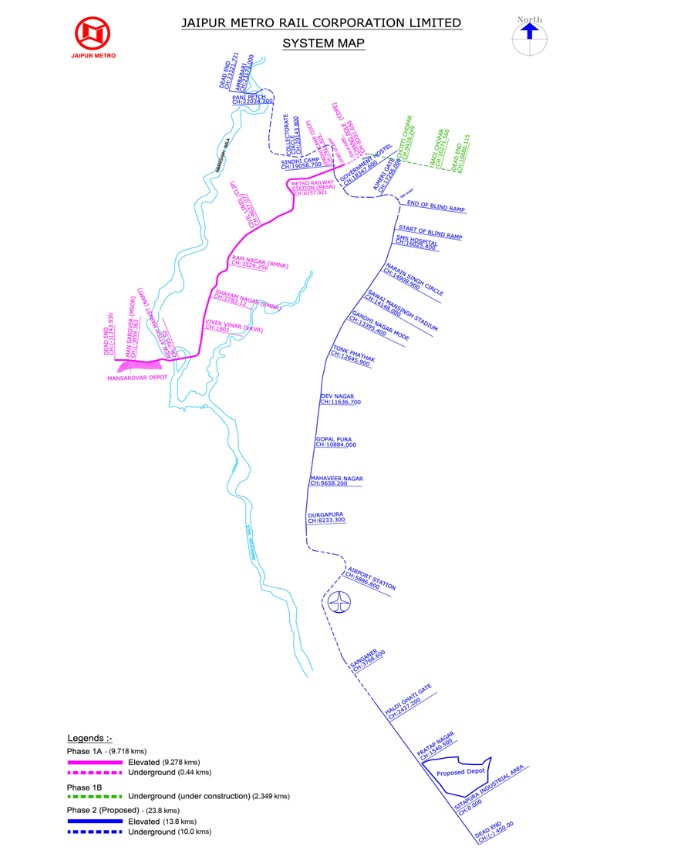
Jaipur Metro is 9.63 kilometers of metros that has been operating in Jaipur, Rajasthan, since the year 2014. The Jaipur Metro is known as a comfy metro system within India, and its operations, the Jaipur Metro network in India, are completely overseen and controlled under the direction of The State Government of Rajasthan.
The metro trains of Jaipur are in operation from 6.20 am and 9.49 pm each day. Additionally, the cost of fares ranges between INR 12.50 to INR 18. The daily average ridership for Jaipur Metro is 50,000 passengers.
10. Kochi Metro Rail Network
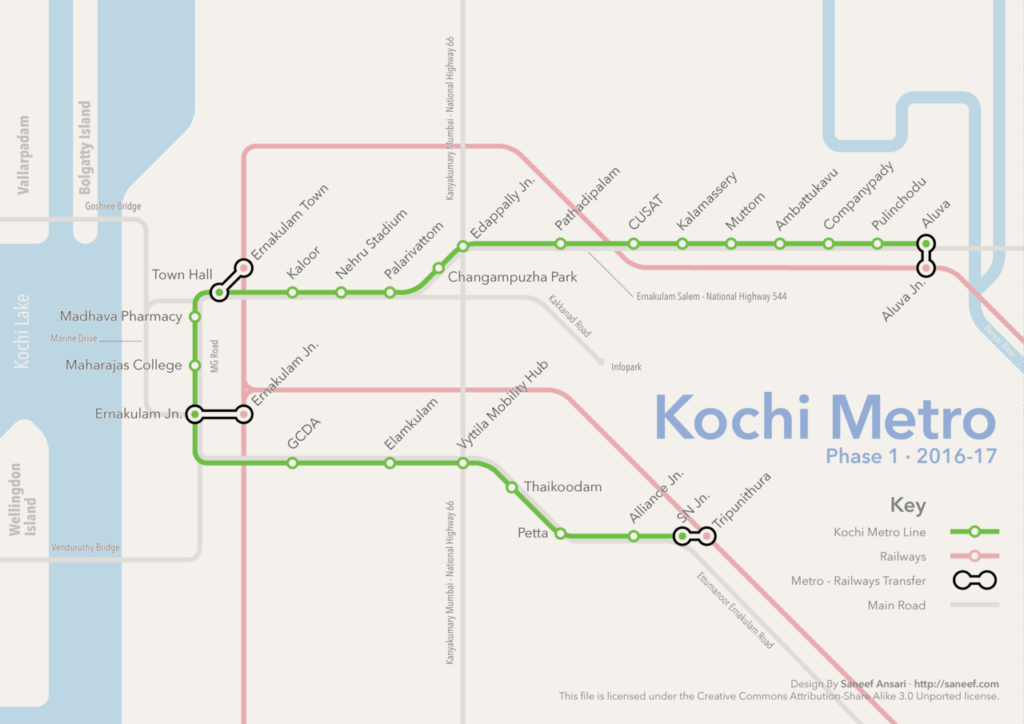
Kochi Metro is a service that serves Kochi, Kerala, and extends over 25 km. The project was completed in just four years, which makes it the quickest project for a metro network in India to be fully finished. It’s also the first metro system that connects via rail, road, and waterways.
This metro network in India is also known to be an inclusive employment-generating network, giving out job opportunities for the members of the transgender community as well.
All metro rails in Kochi are in operation from 6.20 am and 10.30 pm each day. Furthermore, the price varies between INR 10 to INR 60. The average daily usage for Kochi Metro is 10,00,000 to 15,00,000.
11. Noida Aqua Line Metro Rail Network
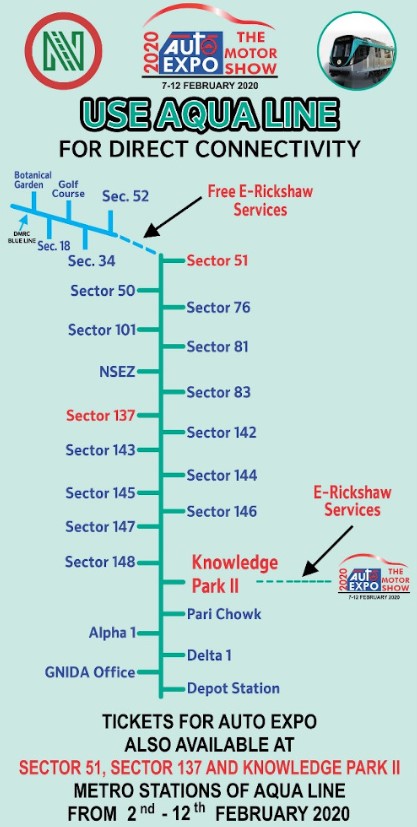
The Metro Rail Network of Noida is officially referred to under “the Aqua Line. The Aqua Line links Noida and Greater Noida in Uttar Pradesh. Spread over 29.7 kilometers in total, the Aqua Line includes 21 stations total. The metro network located in India has been operational since 2019 and is administered through the Noida Metro Rail Corporation Ltd. (NMRCL).
A modern metro system is located in India, and all metro trains of the Aqua Line run from 6.00 am and 10.00 pm each day. Additionally, the cost of fares paid by passengers ranges between INR 10.10 to INR 50. The average daily usage of Aqua Line Metro is around 30,000.
12. Lucknow Metro Rail Network
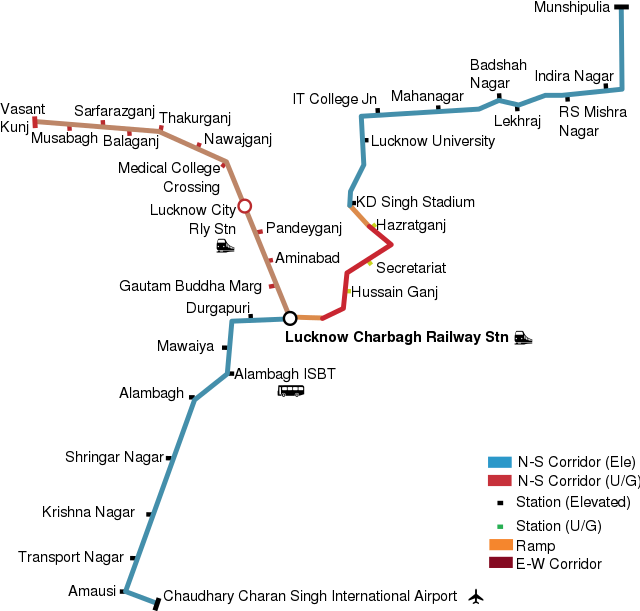
The Lucknow Metro Rail Network is a network that covers all in Lucknow, Uttar Pradesh, 2017. It is India’s record-breaking expensive metro system and is administered by the Lucknow Metro Rail Corporation (LMRC).
The metro trains of Lucknow operate from 6.00 am and 11.00 pm each day. The cost for fares varies between INR 10 to INR 50. The average daily usage of Lucknow Metro is 60,000 passengers.
13. Nagpur Metro Rail Network
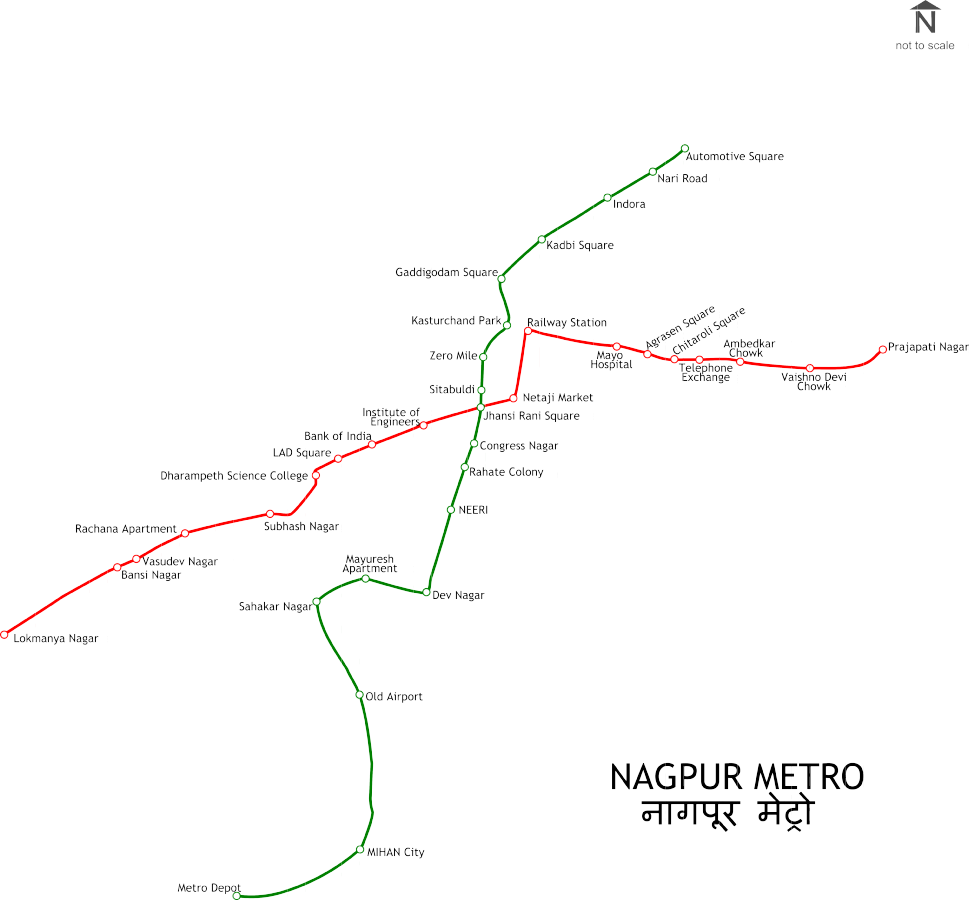
Nagpur Metro Rail Network covers and serves Nagpur, Maharashtra. Since 2015, It is considered the most eco-friendly Metro system in India since it doesn’t cause a lot of pollution.
This metro system in India extends over 22 km and includes two principal corridors. The metro rails in Nagpur operate from 8 am to 8:55 pm daily. Furthermore, the price varies between INR 10 to INR 55. The average daily number of riders on Nagpur Metro is 51,670 passengers.
14. Pune Metro Rail Network
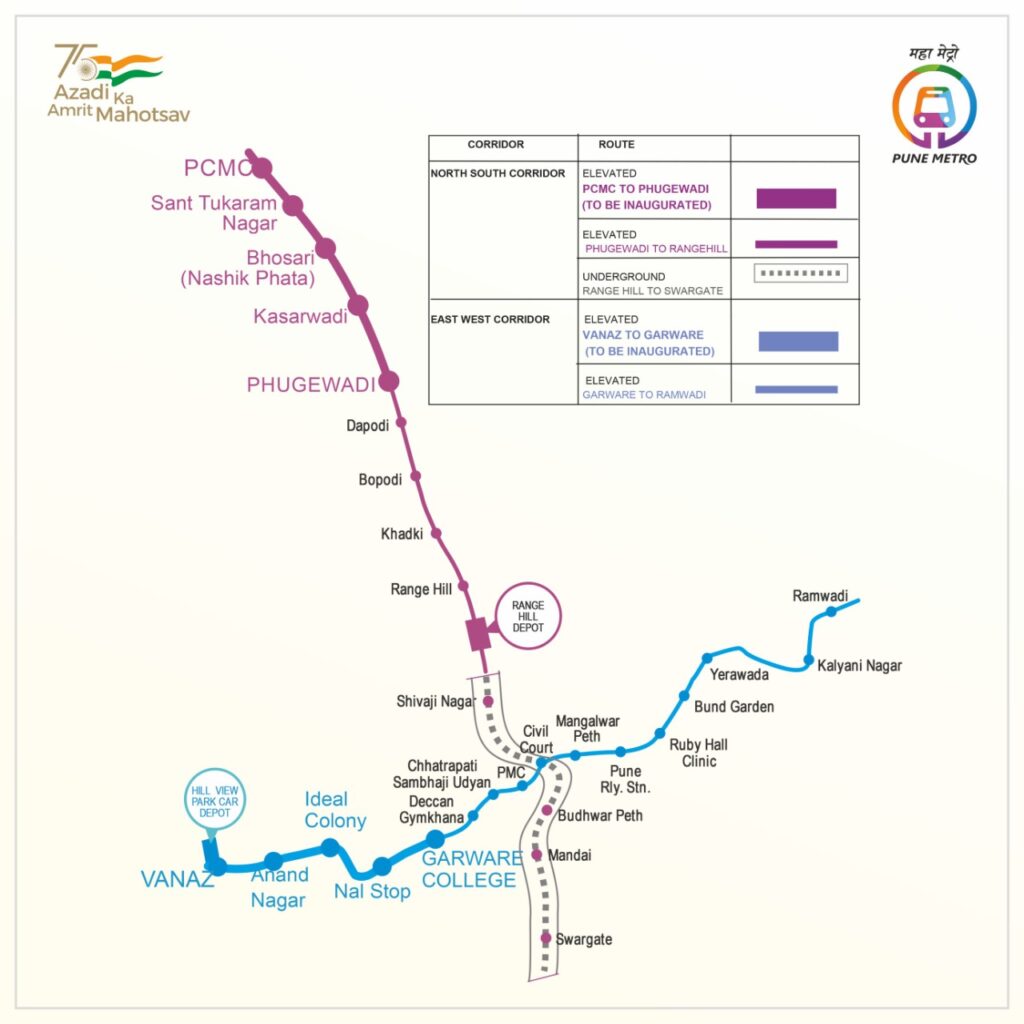
Pune Metro Rail Network is controlled by PMRDA and comprises three tracks: purple-red, aqua, and purple. PMRDA approved this project in 2016, and two lines are currently operating in Pune. Pune.
The metro system in India operates from 8 am to 9 pm, and the cost for a ride can range from INR 10 up to INR 20.
Line 1 (Purple Line) of the metro network in India starts at PCMC and runs to Swargate. Line 2 (Aqua Line) of this metro system in India begins at Vanaz and is completed at Ramwadi. Additionally, Line 3 (Red Line) of this metro system in India is currently being constructed. It will start at Quadron and run up to Civil Court.
15. Kanpur Metro Rail Network
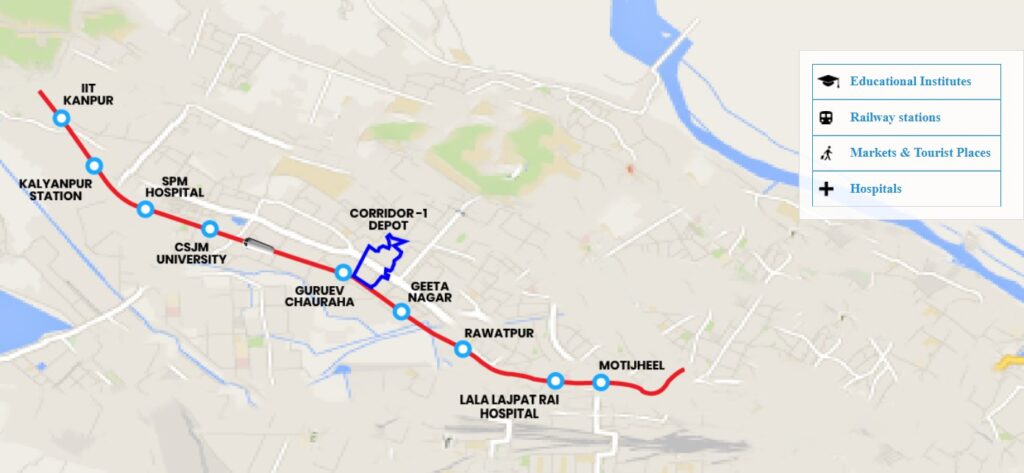
Kanpur Metro’s operational Orange Line stretches from IIT Kanpur to Motijheel. Additionally, there are additional metro stations along the Orange Line that are under construction in Kanpur. On the other hand, a Blue Line is under construction. Blue Line is under construction which runs between Agriculture University to Barra 8.
This metro system in India operates between 6 am and 10 pm. Furthermore, the fares vary between INR 10 to INR 30.
Under Construction Metro Network in India
To reduce travel in various parts of the nation, there are numerous development metro projects to extend India’s metro system. Complete with top-of-the-line facilities at affordable costs and with a low cost of operation, these metro projects will build a world-class metro network in India which will change how we travel within our cities.
- Agra Metro: Agra Metro would be operational in the city of Agra. It is a four-kilometer metro route being constructed right now, with the project being led by UPMRCL. Furthermore, the complete approved routes will be 25.4 kilometers.
- Bhopal Metro: The metro project will serve cities like Bhopal. The route that has been approved covers an area of 21.65 km. 6.22 kilometers part of it is in construction by MPMRCL.
- Indore Metro: The metro was designed to serve Indore, a city in Indore, 5.29 km of this metro project is currently under construction. As Line 3 (Yellow Line) is still under construction, as are Line 1A and Line 1B, Lines 2 and 4 have been proposed.
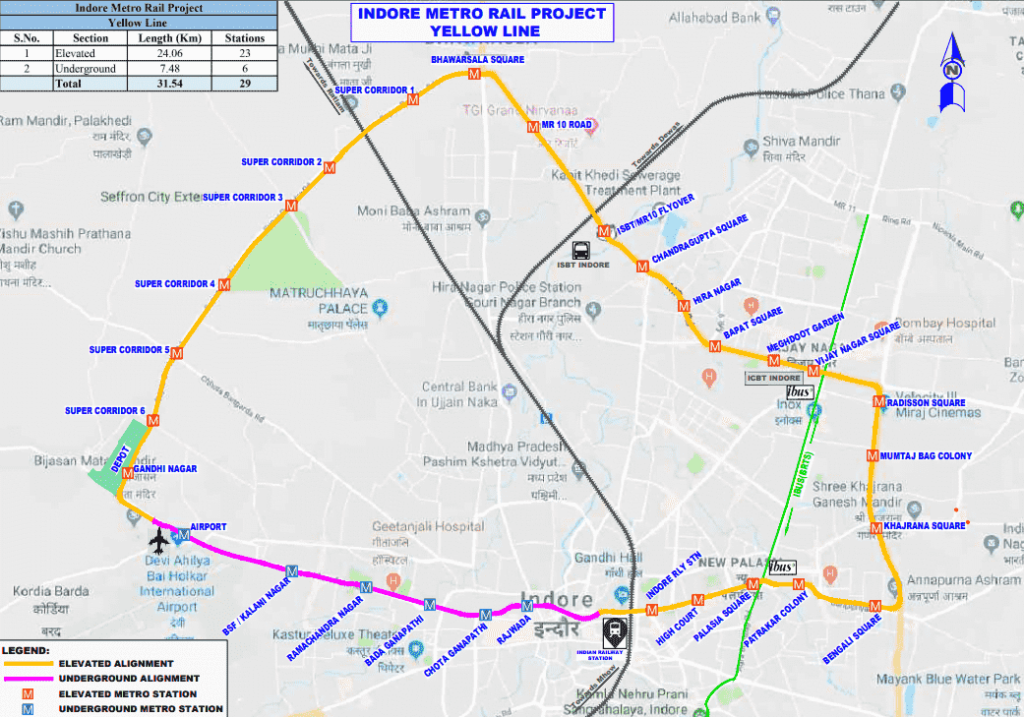
- Meerut Metro: Soon, this metro will serve cities like Meerut. Three routes cover 3 km currently under construction.
- Navi Mumbai Metro: The Metro was created to serve the people of Navi Mumbai. The metro project covers around 11.10 kilometers of this metro project currently under construction.
- Patna Metro: Based on PMRC, the project will encompass 24.803 kilometers in Patna.
- Surat Metro: Surat Metro Project is managed by GMRC. Metro routes that currently cover a distance of 18.62 kilometers are being constructed.
Approved Metro Projects
Apart from the cities listed above, a few metro projects are awaiting approval to enhance existing metro networks in India. The approved metro projects to expand Metro networks in India comprise the following:
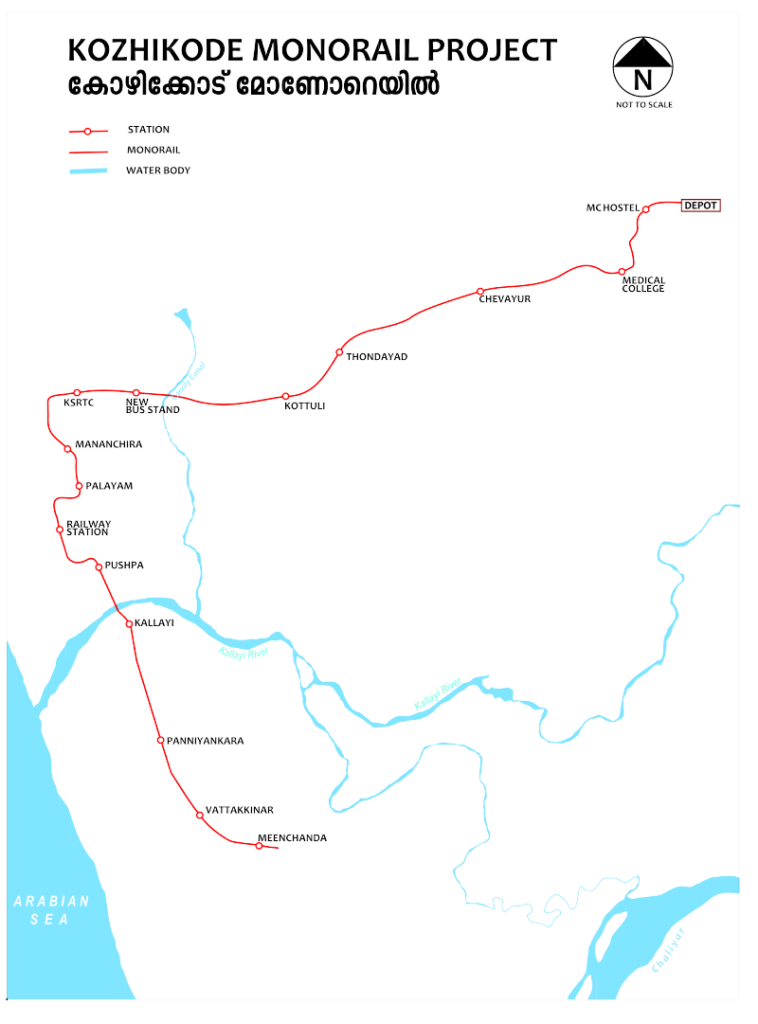
- Gorakhpur Metrolite
- Kozhikode Metro
- Nashik Metro Neo
- Trivandrum Metro
- Vizag Metro
Proposed Metro Projects
There are many proposals for inclusion within the metro network of India by the authorities in charge to help transform cities and provide services to citizens. Below, we’ve highlighted some of the metro projects which would make up Metro network India:
- Warangal Metro Neo in Telangana
- Rajkot Metrolite/Metro Neo in Gujarat
- Jamnagar Metrolite/Metro Neo in Gujarat
- Vadodara Metrolite/Metro Neo in Gujarat
- Bhavnagar Metrolite/Metro Neo in Gujarat
- Chennai Metrolite in Tamil Nadu
- Coimbatore Metro in Tamil Nadu
- Aurangabad Metrolite in Maharashtra
- Varanasi Metro in Uttar Pradesh
- Prayagraj Metro in Uttar Pradesh
- Guwahati Metro in Assam
- Delhi Metrolite in Delhi
- Raipur Metro in Chhattisgarh
- Jammu Metro in Jammu and Kashmir
- Srinagar Metro in Jammu and Kashmir
- Vijayawada Metro in Andhra Pradesh
- Bangalore Metrolite in Karnataka
- Uttarakhand Metro in Uttarakhand
In Sum – Metro Network in India
In the case of the metro system in India and the metropolis, all cities in metropolitan India have been blessed with a highly-connected metro rail that will be expanded to additional cities across the nation. Different state governments’ plans indicate that every town will build existing projects to their fullest potential and bring high-quality metro infrastructure to tier 2 and 3 cities. This will help connect more rural and urban neighborhoods and expand India’s metro network.
Also Read: Kanpur Metro Rail: Route, Timings, Fare, and Latest News
Similar Topics: Pune Metro Route 2022-23: Map, Timings, Fare, and Updates





